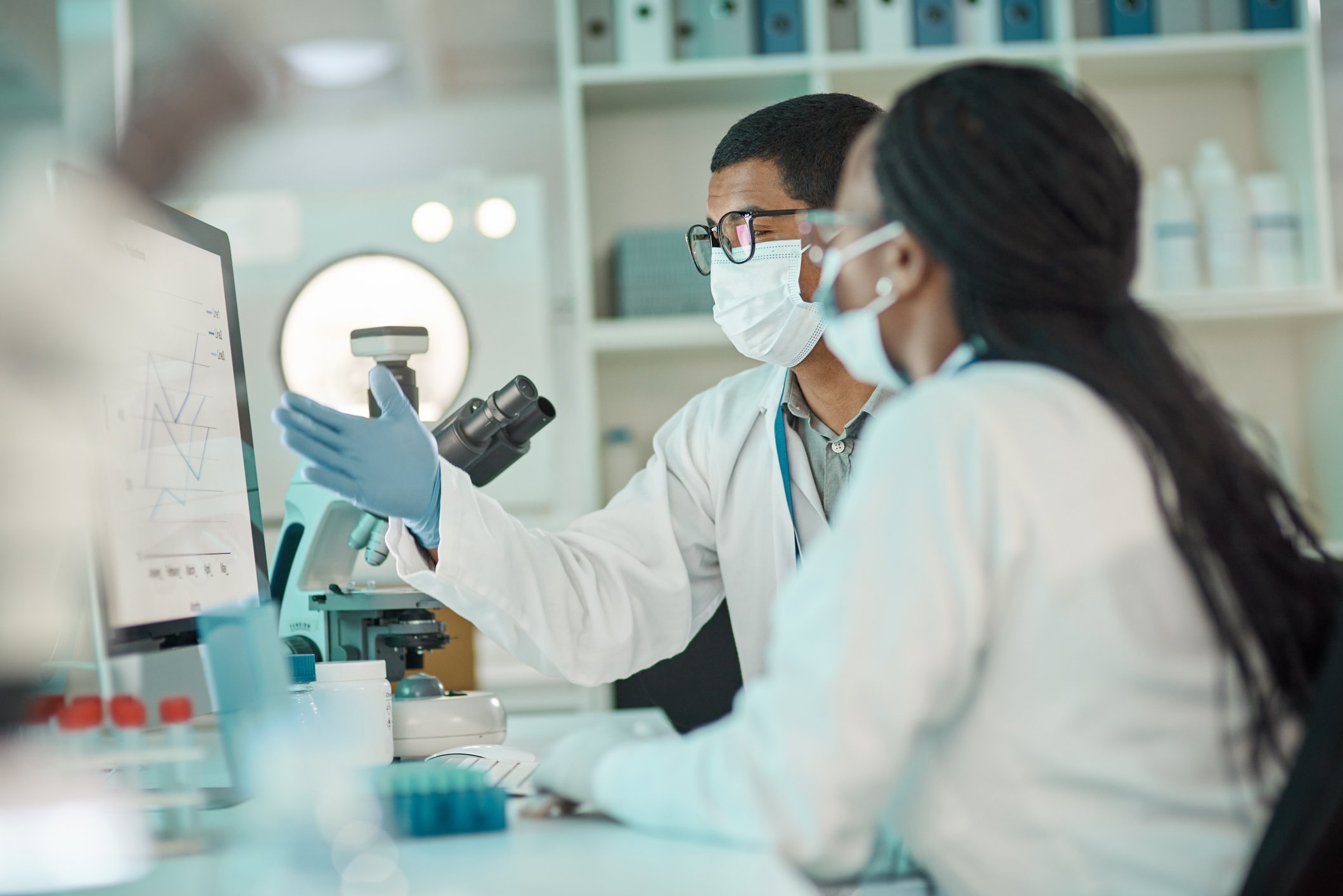The sheer volume of biotech IPOs over the past few years makes it challenging to keep up to date on all these newly public companies. Several have returned to the capital markets to load up on cash to fund ongoing research and development (R&D) efforts. Among this crowd, Y-mAbs Therapeutics (YMAB +0.00%) continues to execute as its stock price climbs.
More than a unique name
Y-mAbs refers to the company's research efforts on monoclonal antibodies, often referred to as mAbs. The Y comes from the shape of a typical antibody. Each of the arms can be engineered to bind to certain proteins or receptors to induce a specific biologic activity. Y-mAbs Therapeutics focuses on oncology applications -- in particular, rare, pediatric cancers.

Image Source: Getty Images.
Targeting pediatric brain cancer
Y-mAbs's lead drug candidate, naxitamab, aims to be the first choice for maintenance therapy for patients with relapsed or refractory neuroblastoma. On March 31, the company completed its Biologics Licensing Application (BLA) with the Food and Drug Administration (FDA), the first step on the path to approval.
Neuroblastoma, a cancer of the nerve tissue, typically begins in childhood. Two-thirds of cases present before age five. According to the National Cancer Institute, more than 650 cases are diagnosed each year in the U.S.
Naxitamab will duke it out in this rare cancer population with Unituxin, currently marketed by United Therapeutics (UTHR +0.90%). Naxitamab offers several competitive advantages. First, patients receive it along with another drug called isotretinoin. Unituxin must be given with isotretinoin and two other drugs. Second, naxitamab is given by a 30-minute infusion three times a week, compared with Unituxin's 8- to 20-hour infusion four times weekly. Lastly, treatment with naxitamab eliminates the need for the patient to have had a prior autologous stem cell transplant (in which the patient's own stem cells are harvested, then returned to the body).
Beyond naxitamab, Y-mAbs plans to submit a BLA in June for its second drug candidate, omburtamab. The initial indication targets a complication of neuroblastoma called central nervous system leptomeningeal metastasis, or CNS/LM. While this condition is extremely rare, with only 80 cases diagnosed annually, omburtamab treatment increased overall survival from about six months to nearly 51 months.
Hidden assets
While the initial cancer populations for naxitamab and ormburtamab are extremely rare, the government offers programs to incentivize companies to pursue these types of diseases. One such mechanism is the Rare Pediatric Disease Designation. Upon approval, this designation provides the company with a Priority Review Voucher. These vouchers can be used for any new drug application, not just those targeting rare diseases, to expedite the FDA's review time from the standard 10 months to six months.
Importantly, the priority review vouchers can be sold. United Therapeutics earned a voucher for the approval of naxitamab's competitor Unituxin. It sold the voucher in 2015 to AbbVie for $350 million, representing the highest amount ever paid for a voucher. More recently, prices have ranged from $80 million to the low $100 millions.
Y-mAbs claims that both naxitamab and ormburtamab are eligible to receive vouchers. Considering both drugs could be approved over the course of the next year, Y-mAbs could end up with two valuable vouchers it can resell.

Image Source: Getty Images.
Rising stock
Following a successful, upsized IPO, Y-mAbs's stock price has steadily increased to the tune of 140%. That said, the business was not immune to the recent coronavirus market sell-off, with the stock price cut in half at one point. It has since returned to positive territory with fervor: A 50% loss has been replaced with a year-to-date gain of 23%.
A relatively low float -- number of shares available to trade -- adds to Y-mAbs' trading volatility. The company has approximately 39.8 million shares outstanding, but only 17.7 million are in the float. Insiders own 37% of the stock.
The takeaway
Biotech investing comes loaded with risk. Y-mAbs gives an interesting option for treating very rare pediatric cancers. While competitor Unituxin posted $113.7 million in 2019 sales, naxitamab's convenience and superior efficacy could steal a good deal of market share.
At a $1.5 billion market cap, Y-mAbs seems a little frothy. While the company's pipeline boasts more shots on goal than naxitamab and omburtamab, those programs remain at an earlier stage of development. I suggest keeping it on the radar and buying on any dips that occur before the FDA gives its approval decisions.





